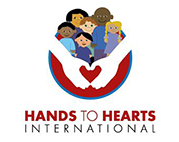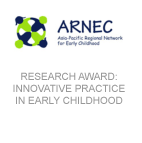It is time to coin a new acronym. Agencies, governments and aid groups around the world talk a lot about “ECD”, which is an acronym for “early childhood development”. This refers to the age range from birth to eight years old, and is typically a rather broad reference to programs designed to improve young children’s capacity to develop and learn. However, time and time again, we find that ECD in practice is different than in definition, that is that ECD almost always focuses on children who are age three or older. This is the time when children are getting ready for school and often enter into nursery schools and early learning programs. However, since over 70% of a child’s brain is developed by the tender age of three, and the critical time for bonding and attachment has already passed, it is of critical importance that the babies and infants be reached in meaningful ways.
HHI already is designed to fill this niche in both programming for the the youngest children and in coining a new acronym that more accurately identifies our focus of “Very early childhood development”, which we will now refer to as V-ECD.
So, make note, HHI is here to reach the neediest children, at the earliest time possible, with the most simple and cost effective interventions possible, and what we do is in the newly termed category of V-ECD.









